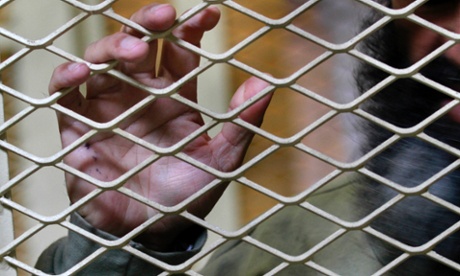 “Safe, Humane, Legal, Transparent”: so goes the slogan of the world’s most famous offshore prison. It’s an Obama-era rebrand, a bid by Gitmo’s PR people to persuade Americans that today’s is a kinder, gentler Guantánamo Bay. There’s just one wrinkle: Gitmo is stilldangerous, nasty, lawless and secretive – and the evidence just keeps piling up.
“Safe, Humane, Legal, Transparent”: so goes the slogan of the world’s most famous offshore prison. It’s an Obama-era rebrand, a bid by Gitmo’s PR people to persuade Americans that today’s is a kinder, gentler Guantánamo Bay. There’s just one wrinkle: Gitmo is stilldangerous, nasty, lawless and secretive – and the evidence just keeps piling up.
At the forefront of this war over the truth is the first-ever trial concerning the practice of force-feeding prisoners on hunger strike, due to start Monday. My client, Abu Wa’el Dhiab – a Syrian man who has never been charged, and indeed has been cleared to leave Guantánamo by the US government for more than five years – has been fighting for over a year to reform the way he and other hunger-strikers have been treated. He’s finally about to have his day in court.
But the Obama administration refuses to accept this unusual intrusion of justice into its island idyll. On Friday, US justice department attorneys filed a motion asking the court to hear all evidence in the trial entirely in closed court, save a short, anodyne opening statement from lawyers on both sides.
What we had planned to discuss in public is no secret – at least, not a legitimate one. Three expert witnesses would take the stand to talk openly about the gruesome effects of force-feeding on Abu Wa’el. A bioethicist, a torture physician and a psychiatrist who is also a retired Brigadier General would testify that force-feeding as currently practiced at Guantánamo Bay is punitive – that it is a transparent effort by prison authorities to break detainees’ will and stop them from hunger-striking. What force-feeding emphatically is not, these experts will say, is proper medical care. It is a gross violation of medical ethics. But if the government gets its way, throughout this testimony, the courtroom’s public gallery will be empty.
